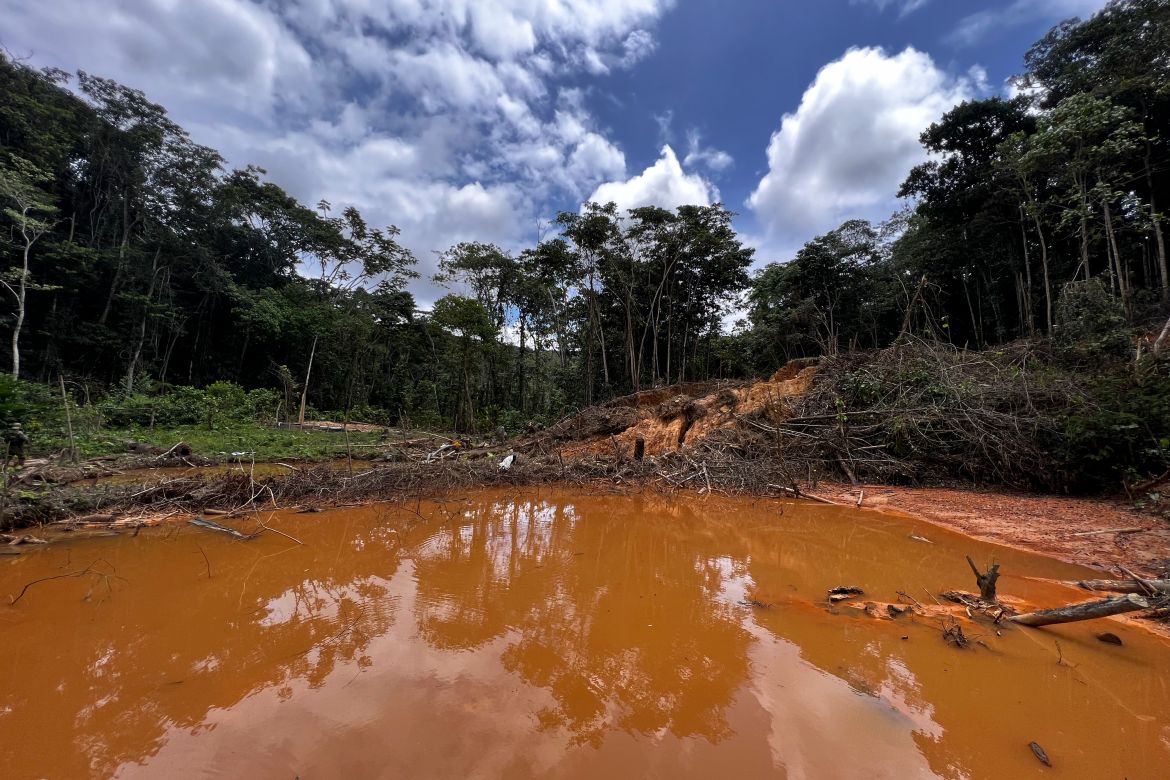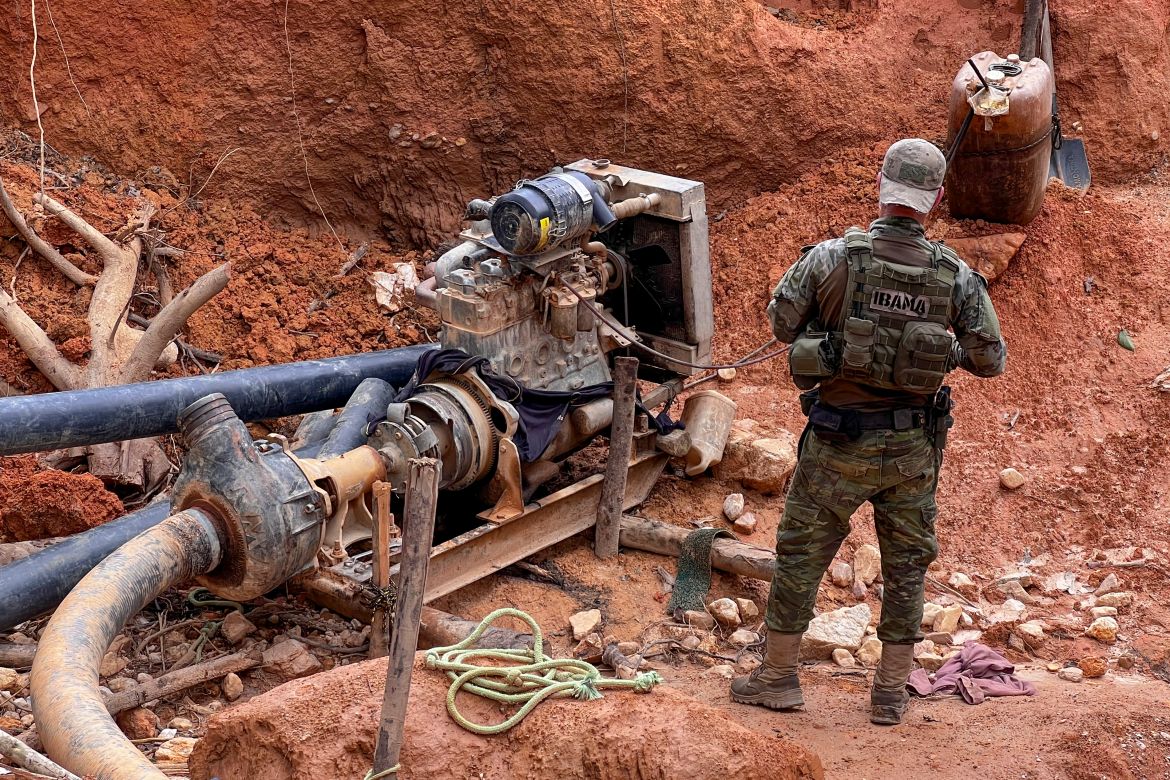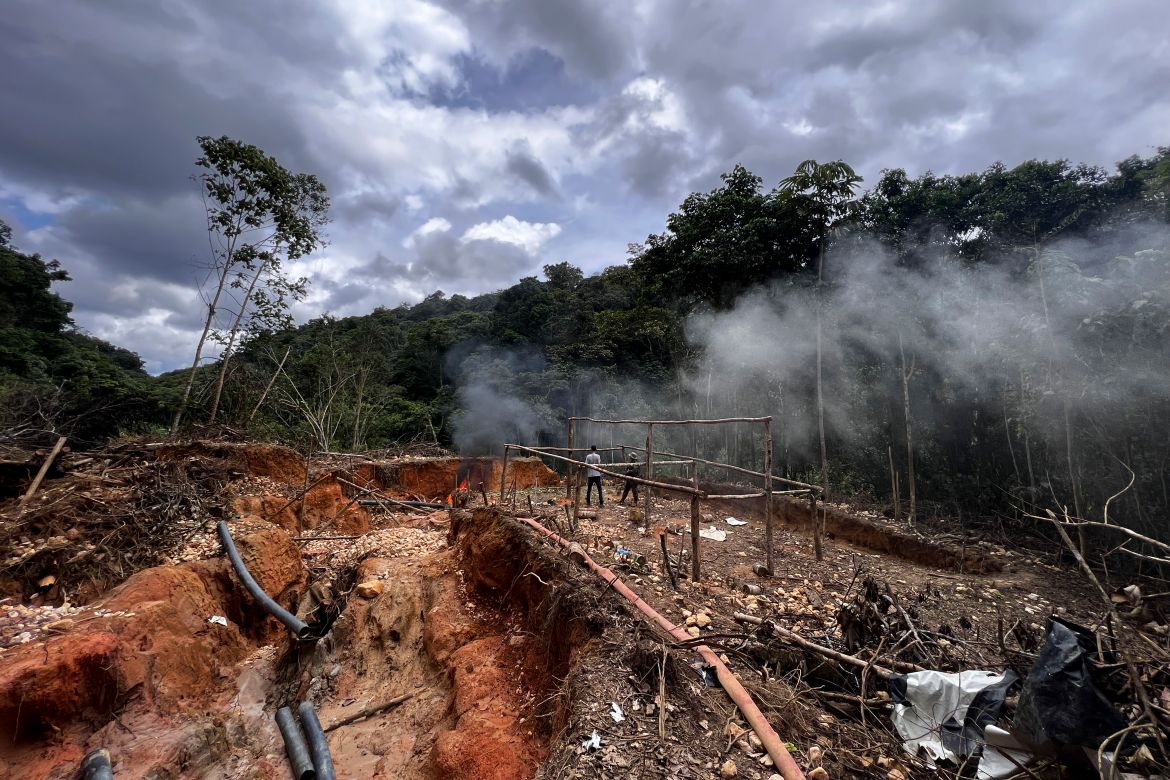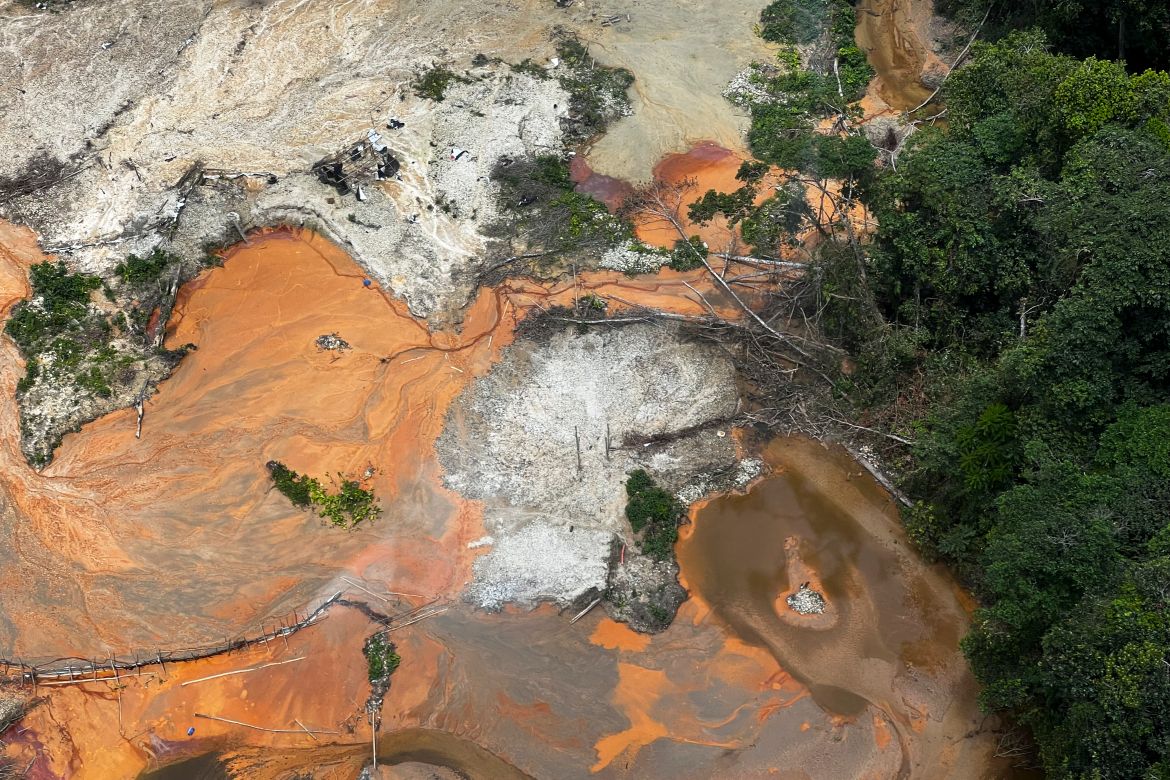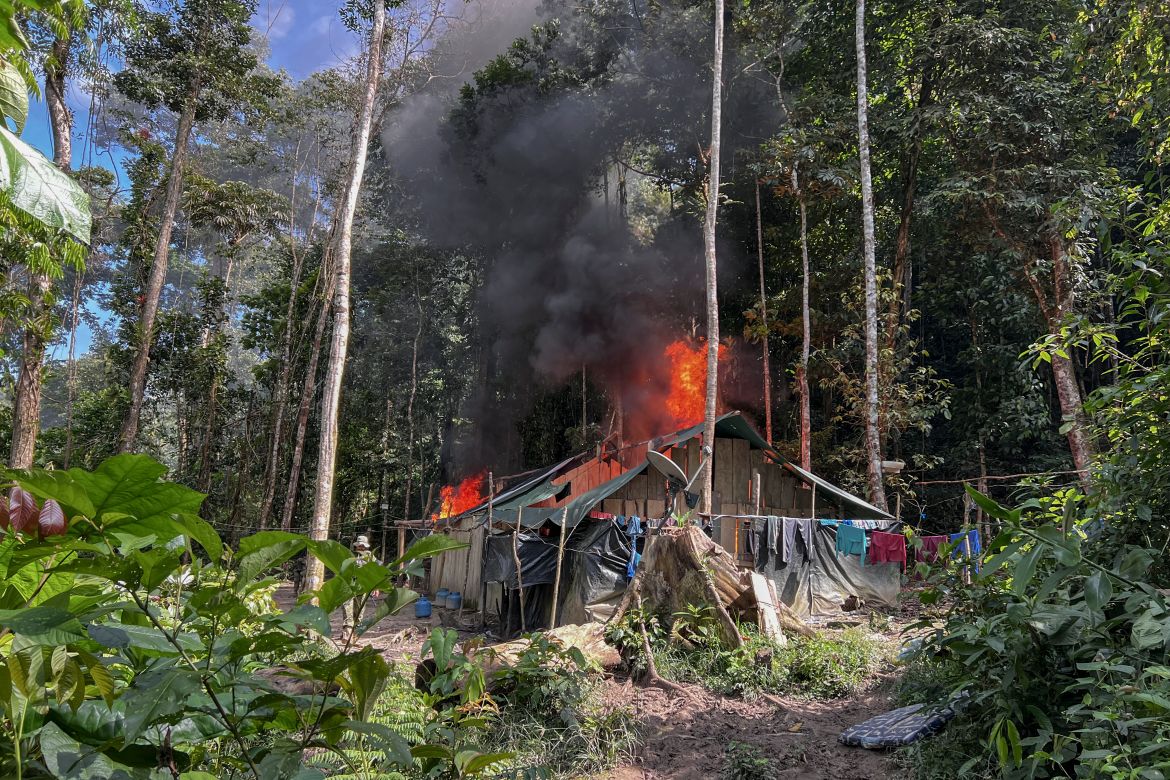In Pictures
Brazil cracks down on illegal miners in Amazon’s Indigenous land
Brazilian authorities deploy helicopters over the Amazon jungle in search of clandestine gold mine sites in areas inhabited by Indigenous Yanomami people.

Brazilian authorities have intensified their fight against illegal mining in areas inhabited by the Indigenous Yanomami people, sending helicopters over the Amazon jungle in search of clandestine dig sites.
From above, heavily armed police and officials from the Ibama environmental agency spot a camp: a brown patch of deforested land in the middle of the vast green carpet that is the Amazon.
There are improvised sleeping quarters, a kitchen, and bathrooms. The sound of engines thrumming indicates the miners are not far away.
Government agents have already blocked illegal movement on the area’s two main rivers, said Felipe Finger, an Ibama coordinator. “Now we are starting another phase – to attack these mining operations, break up and neutralise these camps.”
Spotting the helicopters, the “garimpeiros” or illegal miners, flee into the jungle, leaving behind sacks of cassiterite – tin dioxide-rich ore known as “black gold” – which they sell to commercial buyers.
While camouflage-wearing soldiers torch the camp, agents question a 36-year-old miner who failed to escape.
“Illegal mining is not going to end – it has nothing to do with Lula or Bolsonaro,” he says, referring to the current left-wing president and his right-wing predecessor.
The miner, who gave his name as Eduardo, said he could make 5,000 reis ($1,000) a week working in the camp, adding, “where can you earn that in the city?”
Yanomami leaders say some 20,000 clandestine miners have invaded their territory, killing Indigenous people, sexually abusing women and adolescents and contaminating rivers with the mercury they use to separate gold from sediment.
In January, the federal police opened an investigation of possible genocide linked to the miners’ abuse of the Yanomami and their resources.
The move came after an official report found that about 100 young children had died in the area last year, some from malnutrition.
“We suffer from diarrhoea and vomiting. We have no healthcare. People go hungry and we have nothing to eat,” said one Yanomami.
Brazil’s air force has installed a field hospital in Boa Vista, the capital of northern Roraima state, and the military said it has evacuated some 130 patients by helicopter from remote locations.
Illegal mining rose sharply during the 2019-22 presidency of Jair Bolsonaro, who favoured opening Indigenous lands to such activity.


